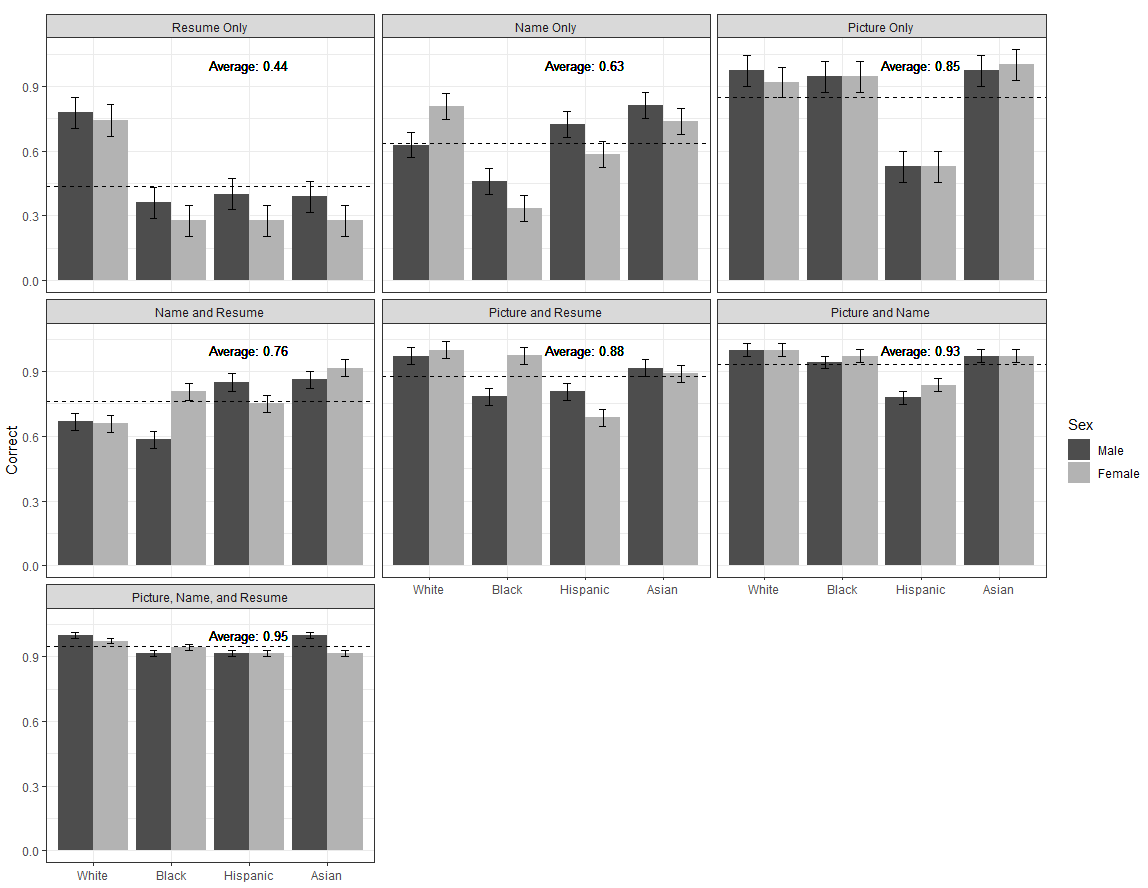Aaron R. Kaufman, Christopher Celaya, and Jacob Grumbach
R&R, JOP
In experimental studies of discrimination, researchers often manipulate cues of social identity to isolate their discriminatory effects, holding all else constant. These studies are influential in public discourse and commonly cited in crafting anti-discrimination policy. We argue that the experimental manipulations common in these studies are prone to noncompliance: respondents do not observe, acknowledge, or update their beliefs about the social identities signaled. Focusing on experiments addressing racial discrimination, we find evidence that racialized name cues suffer from compliance as low as 33%, especially for Black treatments. Adding pre-tested racialized pictures and resume items improves compliance to 95% on average and reduces the variance in compliance across races. Our simulation studies show that this noncompliance tends to attenuate the estimated effects of race by as much as 85%, implying that racial discrimination may be much deeper than decades of audit studies have suggested.
